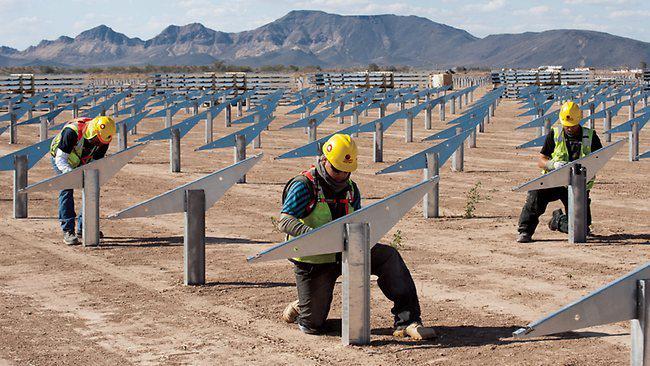IEA PVP’s Snapshot of Global PV 1992-2013 ranks Australia as the 10th country worldwide with the most solar power installations, not far behind the United Kingdom, Greece, Romania and India. China tops the list, followed by Japan, the United States, Germany, and Italy.
Meanwhile, in another survey from the same study, Australia is ranked 8th when it comes to total installed capacity, a list which is topped by Germany, China, Italy, Japan, and the United States. Australia is placed within the same bracket as France, Belgium, the United Kingdom, and Spain.
Australia has been showering solar power with solid support for the last few years, with the issue being a key element in every politician’s bid for public affection. Depending on the current mood as far as energy is concerned, solar power has been dragged in political debates, which has its good effects by leading to more governmental support in the form of subsidies, tax rebates for large commercial establishments, and even installation assistance for residential customers who switch to solar energy.
Solar energy is expected to dominate the scene not just in Australia but also worldwide as more and more innovations are devised every year, including more flexible and portable solar energy technology which are able to reach remote places where a traditional solar panel would really not suffice.
In 2013, a total of 36.9 gigawatts worth of photovoltaic system has been installed worldwide, which could grow as much as 38 GW as complete figures are expected to be brought in. The study claims that such high figures is no longer a surprise given the unprecedented support solar energy has been receiving both from governments as well as both commercial and residential demand.
Number of Solar Energy Countries on the Rise
Solar energy is a relatively new phenomenon which has not been around for that long, but has made significant strides which has allowed it to have the makings of a pioneer when it comes to alternative energy sources. With large multinational corporations at the helm in an attempt for wider profit margins and significant reduction of their carbon footprint, this phenomenon is expected to be in an upswing for the next few decades or so, and could probably even give coal and nuclear energy a run for their money as more solar countries eventually decide to go green.



